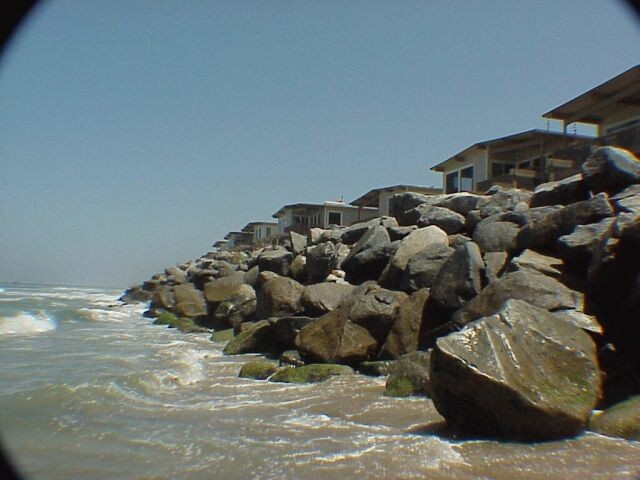
10.17.18
Surfrider Celebrates a Win for Solana Beach Seawall Policy at the Court of Appeal
By Surfrider FoundationIn a win for beach access and coastal preservation, the California Court of Appeal for the 4th Appellate District issued a ruling in favor of the California Coastal Commission (“Commission”), City of Solana Beach and Surfrider Foundation, a mere week after hearing the case. The three-judge panel denied the Beach and Bluff Conservancy’s (“BBC”) challenges to the Solana Beach access and coastal protection provisions of the city'sl Land Use Plan (“LUP”) governing seawalls or bluff retention devices. The BBC, as represented by Pacific Legal Foundation, failed on their challenges to seven specific provisions of the LUP. At the lower court, Judge Casserly’s decision upheld only 5 of the 7 challenged provisions. However, the Appellate Court, in an opinion written by Presiding Justice Haller and joined by Justices Irion and O'Rourke, reversing in part, upheld every challenged portion of the Land Use Plan, validating the hard work of the City and Coastal Commission in reaching a sound compromise policy.
The California Coastal Act provides that a local government must submit its LUP to the Commission to ensure that the LUP is consistent with requirements of the Coastal Act. The LUP and more specific Local Implementation Plan (“LIP”) are part of the overall Local Coastal Program (“LCP”), which must be certified by the Commission. The seawall policy in the amended Solana Beach LUP deals with important issues, for instance, whether a property owner can obtain a seawall permit just to protect an accessory structure like a playset or a gazebo (Policy 4.22) and whether homeowners include deed restrictions on future armoring (Policy 4.19). The homeowners also challenged the validity of the mitigation fees for bluff retention devices, but did not win that argument and did not appeal. As seawalls and other forms of coastal armoring are proven to hasten the loss of beaches adjacent to them, this is no small matter.
After more than 13 years of negotiations and six draft documents, a compromise was reached and a LUP was passed and certified by the Commission. However, bluff top homeowners filed lawsuits against the city over the Land Use Plan portion of their future LCP in 2013, and Surfrider Foundation swiftly intervened to ensure coastal rights to access were protected in this litigation. Here, the litigants are an isolated, vocal and well-funded minority of front row bluff top homeowners in Solana Beach, which sued on the broad plan policies, despite the fact that both the city and the California Coastal Commission have approved almost every seawall they sought over the last 30 years. In addition, the blufftop owners who own seawalls have used public land for these seawalls virtually rent free, even though seawalls destroy the scenic characteristics of the coast and eventually limit or even destroy access to the beach. This vocal minority has also delayed progress on completion of a Implementation Plan (IP) the last element of a certified LCP. An IP would give permit authority to the city so most residents would have one stop shopping for even simple remodeling instead of having to go to the Coastal Commission for separate permits.
While this lawsuit is a strong win allowing Solana Beach’s reasonable seawall policy to stand, the fight is far from over. This state appellate court precedent applies to “facial” challenges to LUPs overall and not the “as applied” challenges that could come against each and every permit. Additionally, this lawsuit failed partially on procedural grounds in that the challenge did not come in the form of administrative mandamus, which is required when the Commission acts in a quasi-judicial capacity. BBC’s constitutional challenges to the LUP under the “unconstitutional conditions doctrine” for takings also failed on the merits.
Surfrider Foundation is exceedingly grateful for the assistance provided by Mills Environmental Law Clinic from Stanford Law School throughout the case. As Law Clinic Attorney Molly Loughney Melius stated: “The Court upheld two decades of careful planning that struck a balance between private interests and the public's right to access and enjoy the beach. The ruling is a big win for the type of local coastal policies that are needed to restrict coastal armoring and to help protect California's iconic beaches.”
